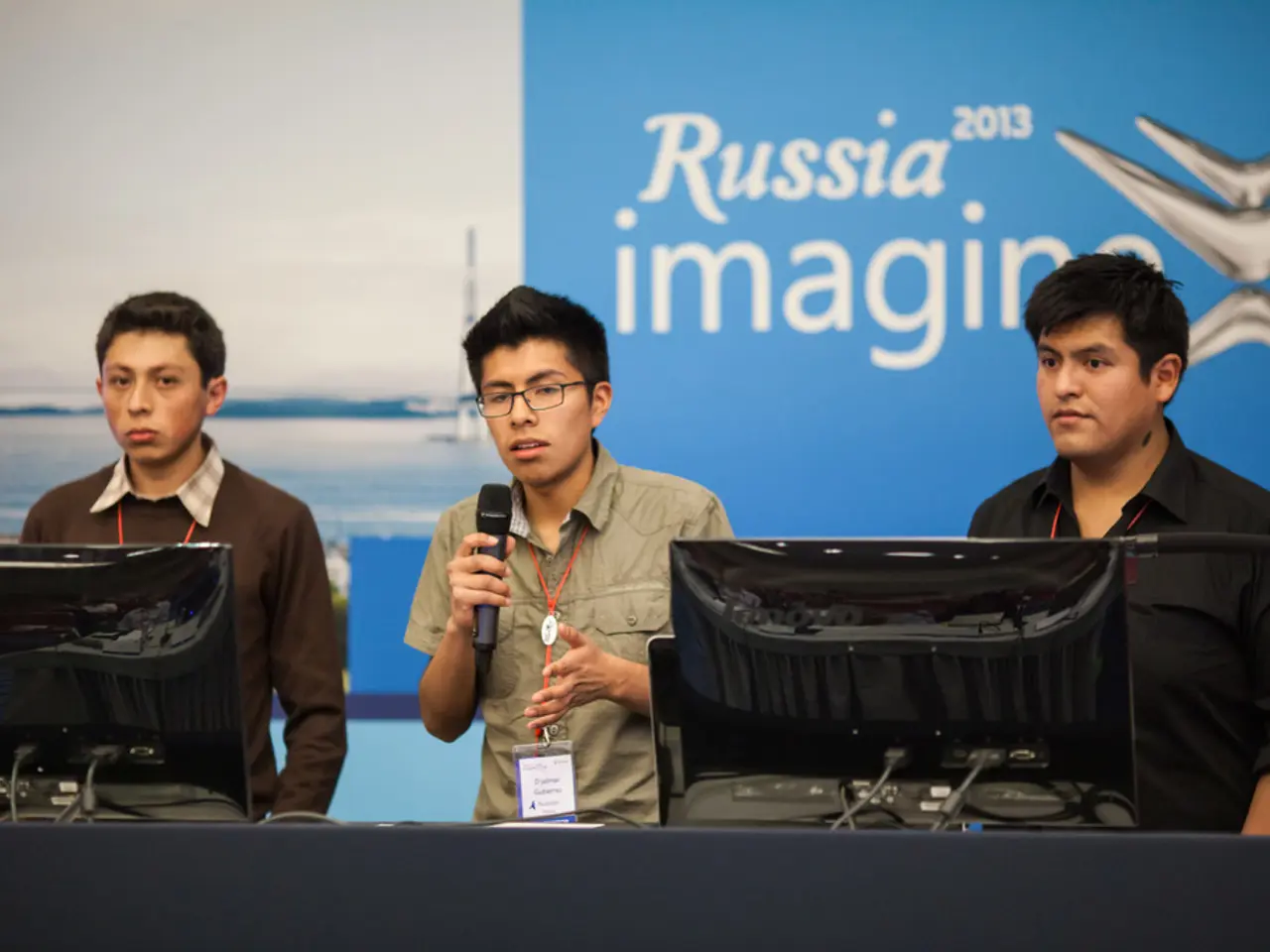Lawsuit Filed by Immigrant Advocates Challenging Trump's Executive Order on Birthright Citizenship
In a significant development, the Supreme Court of the United States has partially lifted the nationwide block on President Donald Trump's executive order aiming to redefine birthright citizenship. The ruling, issued on June 27, 2025, allows the administration to enforce the order in states where there is no ongoing legal challenge, such as Texas and 27 other states.
The decision, however, does not affect the plaintiffs involved in the original lawsuits, whose legal challenges are still pending. The executive order, if upheld and enforced, would restrict birthright citizenship to the children of U.S. citizens and U.S. legal permanent residents, denying citizenship to babies born on U.S. soil whose parents are not citizens or lawful permanent residents.
The lawsuit was filed by attorneys for the American Civil Liberties Union and the New Hampshire Indonesian Community Support nonprofit, representing a couple who arrived as refugees from Indonesia in 2023 and have a pending application. The couple fears their baby, due to be born, could be born as an undocumented immigrant and therefore ineligible for certain services.
According to attorney Cody Wofsy, the deputy director of the ACLU Immigrants' Rights Project, birthright citizenship is guaranteed in the U.S. Constitution. Denying citizenship to babies born on U.S. soil is illegal, he asserted.
SangYeob Kim, a senior staff attorney with the American Civil Liberties Union of New Hampshire, stated that the enforcement of Trump's executive order risks the creation of a multigenerational "underclass" of families with limited rights. Kim further emphasised that every child born in the United States should be born with the same rights as every other child, and that the U.S. Constitution ensures that no politician can ever decide who among those born in the country is worthy of citizenship.
The practice of conferring citizenship unto all persons born on U.S. soil, irrespective of their parents' legal status, is known as birthright citizenship. If upheld, Trump's executive order would mark a significant departure from this long-standing practice.
The administration has indicated it plans to begin enforcing the executive order as early as July 27, 2025, after the 30-day period authorized by the Supreme Court. Despite the Supreme Court decision, the actual constitutional question of whether ending birthright citizenship via executive order is lawful remains unsettled and is expected to face further litigation, including potential class action lawsuits.
It is important to note that, as of early July 2025, birthright citizenship remains the law for all children born in the U.S., and no change has yet occurred. Anyone born in the country before the order goes into effect retains citizenship rights under the Fourteenth Amendment.
A coalition of state attorneys general have already filed a multistate lawsuit against the directive, and the legal battle over Trump's executive order continues. The future of birthright citizenship in the United States remains uncertain, with the outcome of the ongoing legal challenges likely to have significant implications for millions of families.
The Supreme Court's decision to partially lift the block on President Trump's executive order indicates a shift in policy-and-legislation that may redefine birthright citizenship, becoming a subject of intense politics. As the executive order, if upheld, would change the general-news regarding the long-standing practice of birthright citizenship, legal challenges from various parties, including attorneys and state attorneys general, are expected to continue, potentially resulting in further policy-and-legislation alterations.








